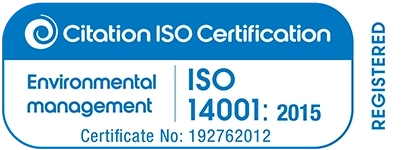
The digital markets act was introduced back in December of 2020 and is expected to be enforced before the end of this year, it is a form of legislation that allows smaller tech companies to have a greater chance of competing with companies like Apple, Microsoft, Meta and more.
These big tech companies are also referred to as “gatekeepers” and this legislation forces these companies to open up their services to other smaller businesses. These gatekeepers have also been criticized in the past for squeezing out competition because of the sheer size of their market share within their sector, meaning this will further encourage fair markets. The EU antitrust chief, Margrethe Vestager said “What we want is simple: fair markets… in digital.” Further following that up with “Large gatekeeper platforms have prevented businesses and consumers from the benefit of competitive digital markets.”
A business will be considered a gatekeeper if it reaches an annual turnover of at least €7.5 billion in the EU during the last three years or if its business reaches a market capitalisation of at least €75 bn.
This law is to target the companies with their own services to allow consumers to widen their choices whilst using their products.
How will the Digital Markets Act affect you?
Big companies will have to open up their services to other businesses meaning; for example, Apple will have to allow their users to have the choice to delete the apps like safari and other company-imposed apps, further loosening their grip with the iPhone. Furthermore, Apple will have to open up their app store payments and allow users to use a different payment method from their own, giving users a wider range of choice when it comes to the use of their phones. With this new range of choice within the industry, it will eliminate people to be swayed towards their product because of popularity, but instead more because of their needs.
This also effects messaging services (such as Facebook messenger, WhatsApp or iMessage) as they will also have to open up and allow users to interoperate smaller messaging platforms. Users across all platforms would then be able to exchange messages, make video calls and send files across the different platforms allowing a wider range of choice when it comes to preference. However, co-legislators agreed that such interoperability provisions will be assessed in the future.
Combining personal data for targeted advertising will only be allowed with explicit content to the gatekeeper, also including the users to be able to have choice in which search engine/browser they use.
The punishment for the gatekeepers if they do not comply with the regulations is 10% of the company’s annual worldwide turnover, that percentage doubles in the case of a repeated infringement.
On the 24th of March 2022, the European Parliament reached an agreement on the Digital Markets Act, setting it to be put into practice by the member states. This is also set out as being a milestone for the world to follow in the steps of Europe. It is believed that countries such as the US may follow suit in regards to setting out this legislation further affecting the big tech companies and forcing them to comply.
What do the big tech companies think?
An Apple spokesperson said the company was “concerned that some provisions of the DMA will create unnecessary privacy and security vulnerabilities for our users, while others will prohibit us from charging for intellectual property in which we invest a great deal.” Google said it supported many of the DMA’s ambitions around consumer choice and interoperability but that the company was “concerned that some of the rules could reduce innovation and the choice available to Europeans.”
Casper Klynge, Microsoft’s vice president for European government affairs, said the company was “supportive” of the DMA, Amazon said it was reviewing what the DMA means for the company. Some of the few companies expected to be affected by this legislation, booking.com and Meta, both declined to comment on the subject.
For more infomation visit:





